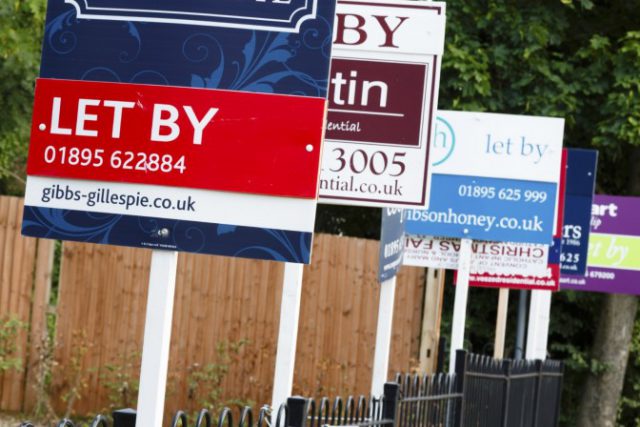Theresa May will shift Government focus from homeownership to renting in this week’s Housing White Paper, as ministers admit that owning a home is out of reach for millions of families.
In a move away from her predecessor David Cameron, who focused on advancing Margaret Thatcher’s ambition for a “home owning democracy”, the Housing White Paper will aim to deliver more affordable and secure rental deals – and threaten tougher action against rogue landlords – for the millions of households who are unable to buy due to sky-high house prices.
Ministers will state that they want to change planning and other rules to enable developers to provide a proportion of new homes for affordable rent, instead of just insisting that they provide a share of affordable homes for sale.
The Housing White Paper will also announce incentives to encourage landlords to offer family-friendly guaranteed three-year tenancies, new action to ban rogue landlords who provide substandard properties, and a further consultation on banning many of the fees charged by letting agents.
A senior Whitehall source comments: “We want to help renters get more choice, a better deal and more secure tenancies.”
They added that the Government did not want to scare people off from renting out homes, but offer incentives to encourage best practice and isolate the worst landlords.
A move away from homeownershup
By focusing on the rights of tenants, as well as trying to boost housebuilding, the White Paper will mark a turning point for the Conservative Party, which, since the 1980s, has promoted homeownership as a badge of success, while neglecting the interests of those renting.

Theresa May to Shift Focus from Homeownership to Renting in Housing White Paper
The Conservative manifesto for the 2015 general election detailed plans for 200,000 new Starter Homes that could be purchased by first time buyers at a 20% discount, but said little about promoting the interests and improving the standards of renting. Cameron also pushed the idea of getting people onto the property ladder through shared ownership schemes – a pledge that is no longer such a priority. The White Paper will be seen as part of May’s deliberate break with Cameron, and her drive to create a country “that works for everyone, not just the privileged few”.
The Communities Secretary, Sajid Javid, insists: “We are determined to make housing more affordable and secure for ordinary working families, and have a rental market that offers much more choice. We understand people are living longer in private rented accommodation, which is why we are fixing this broken housing market so all types of home are more affordable.
“These measures will help renters have the security they need to be able to plan for the future, while we ensure this is a country that works for everyone.”
Councils will be urged to put more emphasis on rental schemes, particularly in towns and cities, while making it easier for Build to Rent developers to provide affordable rental properties.
Rise in renting
The proportion of people living in private rental housing has doubled since 2000, and ministers accept that housing costs “are hurting ordinary, working people the most”. The average couple in the private rental sector now hands over around half of their salary to their landlord every month, while 2.2m households with below-average incomes spend over a third of their incomes on housing.
The Head of Policy at housing charity Shelter, Kate Webb, says: “Ordinary families up and down the country are struggling to keep their heads above water, with sky-high rents and short-term, unstable contracts, which can make it nearly impossible to save and plan ahead.
“It’s vital the Government looks to fix this by introducing long-term contracts of five years or more, so people can plan their lives and feel sale. If the Government really is serious about fixing this problem at its source, then they quite simply need to build more homes.”
Housebuilding rules
Ministers will insist that they will not allow more building on the greenbelt, but will stick to existing rules that this should only happen in exceptional circumstances. They will, however, say that developers must build on land for which they have obtained planning permission, to help reach the Government’s target of one-million new homes by 2020.
The Shadow Housing Minister, John Healey, has expressed scepticism. He argues: “There is a huge gap between Tory rhetoric and their record on housing. For instance, last year, the level of affordable new houses built hit a 24-year low, despite their promises.
“Theresa May has been in the cabinet for seven years and, last year, they resisted every Labour effort to bring in secured tenancies for people in the rented sector, as well as deal with rogue landlords and ensure decent rental standards. The Tories will be judged on their record, not their rhetoric.”
But the Director of tenant lobby group Generation Rent, Dan Wilson Craw, is positive about the plans.
“The Government has finally recognised that homeownership is too distant a prospect for too many people,” he says. “The insecurity created by short-term tenancies is no way to live if you’re stuck renting, especially if you’re raising children.”
He continues: “Most landlords already encourage long-term tenants by keeping rents reasonable, so any new incentives need to target the minority who are happy to kick out tenants in pursuit of maximum rents. We await the detail of the White Paper, but it is essential that as many renters can benefit from greater security as possible. Landlords are a diverse bunch, and relying on incentives rather than wholesale reform risks leaving many vulnerable tenants unprotected.”
We will keep you up to date with the details of the Housing White Paper, particularly its focus on renting, upon its release, at Landlord News.






